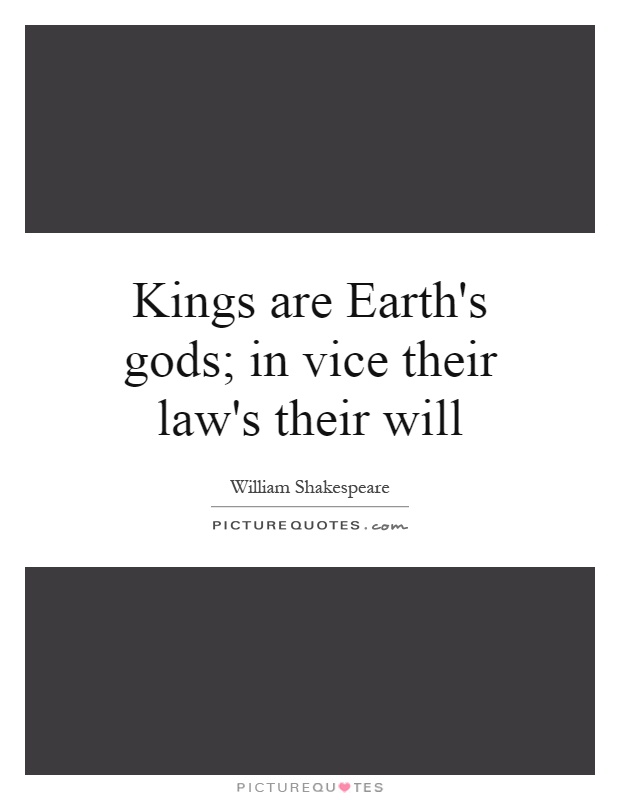Kings are Earth's gods; in vice their law's their will

Kings are Earth's gods; in vice their law's their will
In the world of William Shakespeare, kings were often portrayed as powerful and almost god-like figures. They were seen as the ultimate authority, with the ability to shape the fate of their subjects and the world around them. In many of Shakespeare's plays, kings are depicted as larger-than-life characters who wield immense power and influence over their kingdoms.The quote "Kings are Earth's gods; in vice their law's their will" encapsulates this idea perfectly. It suggests that kings are like gods on Earth, with the power to make and enforce their own laws. This power can be used for good or for evil, depending on the king's character and intentions. In Shakespeare's plays, we see examples of both virtuous and tyrannical kings, each with their own unique approach to ruling their kingdoms.
One of the most famous examples of a virtuous king in Shakespeare's works is King Henry V. In the play of the same name, Henry is portrayed as a noble and just ruler who leads his troops to victory against the French at the Battle of Agincourt. He is seen as a hero and a symbol of English patriotism, embodying the qualities of a true leader.
On the other hand, Shakespeare also explores the darker side of kingship through characters like King Lear and Macbeth. King Lear is a tragic figure who descends into madness as he struggles to maintain control over his kingdom. Macbeth, on the other hand, is a ruthless and power-hungry king who stops at nothing to achieve his ambitions, ultimately leading to his own downfall.
Overall, the quote "Kings are Earth's gods; in vice their law's their will" highlights the complex and multifaceted nature of kingship in Shakespeare's works. It reminds us that while kings may hold immense power and authority, they are also subject to the same flaws and temptations as any other mortal. Shakespeare's exploration of kingship serves as a powerful reminder of the importance of good governance and the consequences of unchecked power.












 Friendship Quotes
Friendship Quotes Love Quotes
Love Quotes Life Quotes
Life Quotes Funny Quotes
Funny Quotes Motivational Quotes
Motivational Quotes Inspirational Quotes
Inspirational Quotes